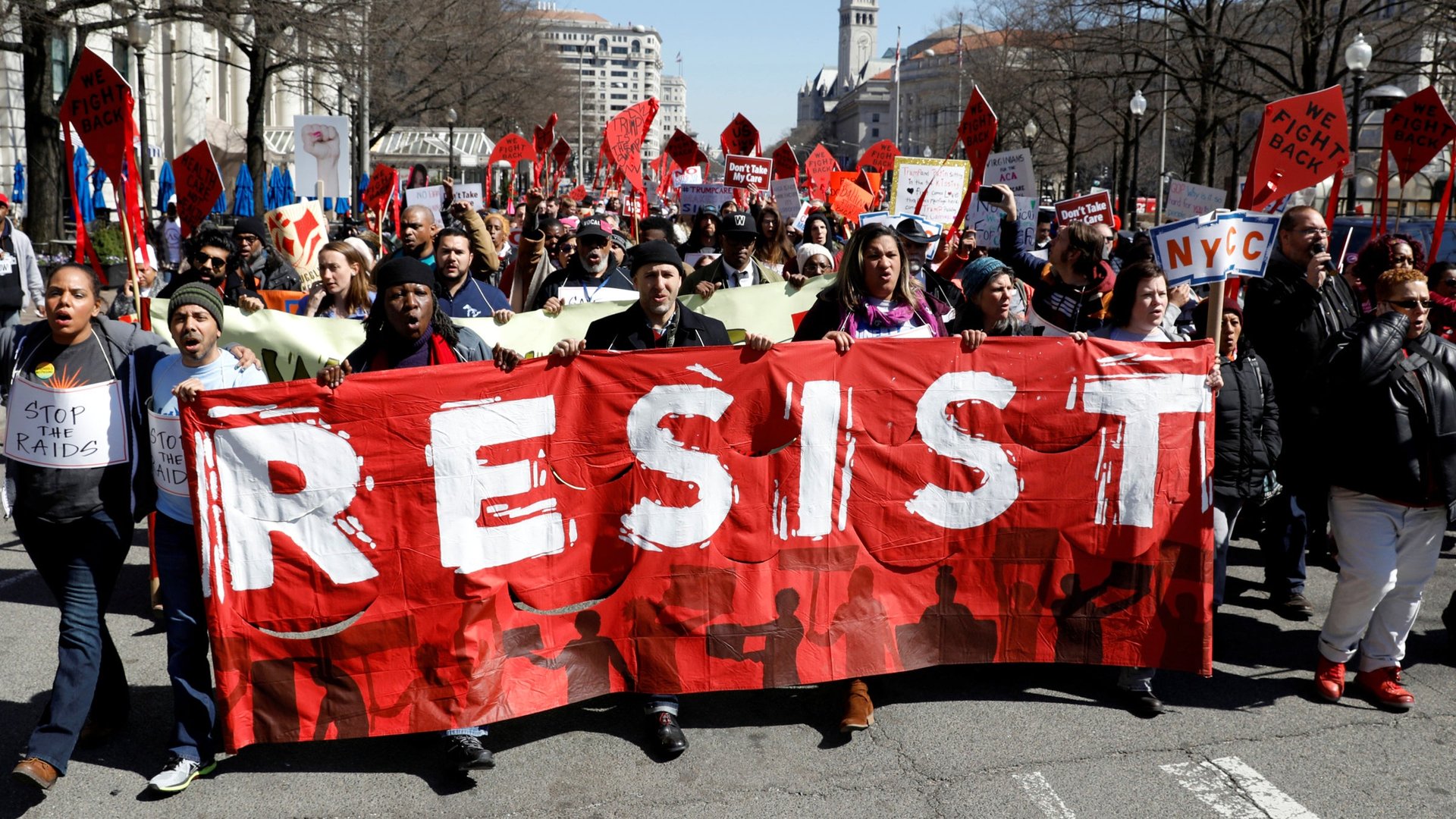Democrats want to flood the streets on Tax Day and seize the most potent issue in US politics
Demonstrations across the United States, including a march organized by an array of progressive groups in Washington, D.C., will mark April 15 by calling on Donald Trump to release his tax returns and reject giveaways to wealthy Americans.


Demonstrations across the United States, including a march organized by an array of progressive groups in Washington, D.C., will mark April 15 by calling on Donald Trump to release his tax returns and reject giveaways to wealthy Americans.
The traditional—though this year, not official—deadline to pay federal income taxes is often a time to symbolically reject the officials controlling the public coffers, an American tradition going strong since 1776.
Conservatives have tended to own the occasion in recent years: In 1993, Newt Gingrich was picking a fight over compromises on tax policy proposed by president Bill Clinton; he would lead the Republican party to control of the House the next year on anti-tax platform. In 2009, tax day saw gatherings of conservatives seeking to oppose newly-elected president Barack Obama’s plan to avert the recession with a timely economic stimulus, the beginnings of a reactionary movement that would once again hand Republicans control of the House.
Now, progressives are applying this playbook in their own quest to reverse their political fortunes, with marches planned in 120 cities from San Francisco to Salt Lake City. Democrats, the party known for backing higher taxes, may not seem to have an advantage on a day when many Americans wish they could pay less, but the politics of taxation aren’t as simple as they seem.
The last three presidential elections, after all, have seen the popular vote won by the candidate backing higher taxes. And polls consistently show that Americans back higher taxes, at least on the wealthy. Heck, this year more Americans are saying that their tax rates are fair—if only because Republicans have now decided that tax rates, though totally unchanged from last year, are more appropriate under Trump than under Obama.
However, 2017 presents a perfect storm for the politics of taxation: A single party controls Washington’s policy-making apparatus and has announced its intent to put in place a large tax cut for businesses and individuals, with the benefits largely accruing to the wealthiest Americans. And leading this effort? A super-wealthy president who is also the first in modern US history not to release his tax returns—and the first whose campaign team was populated by foreign agents and now dogged by federal investigators.
It’s that tension that Democrats will seek to exploit, demanding that Trump release his returns. While Trump’s White House continues to shrug off demands for this basic measure of financial transparency, public-opinion polls consistently show a majority of Americans—including a majority of Republicans—want to see what Trump has been hiding.
Trump’s refusal to disclose his returns presents a political thicket for Republican lawmakers, who want to prosecute the case for their tax plan without being interrupted by the unfortunately germane question of whether these tax cuts are simply intended to benefit the president. Trump’s delicate tax status and his cabinet of billionaires provides added impact to the traditional Democratic arsenal of populist salvoes against special interests.
The key question in political competition is which side can harness the intensity and emotion of their popular support. When Democrats have lost fights over taxation, as they did during George W. Bush’s tax-cutting spree or in the compromise that preserved most of those cuts under Obama in 2013, their strategists often attributed the problem to a lack of focus: Even if voters agreed with their stance on tax policy, they weren’t taking to the streets to make their demands felt.
But Trump, these strategists hope, could be a kind of focusing lens for the wide-ranging resistance to his presidency, channeling this passion against a tax bill that might be the defining political conflict before the 2018 elections.